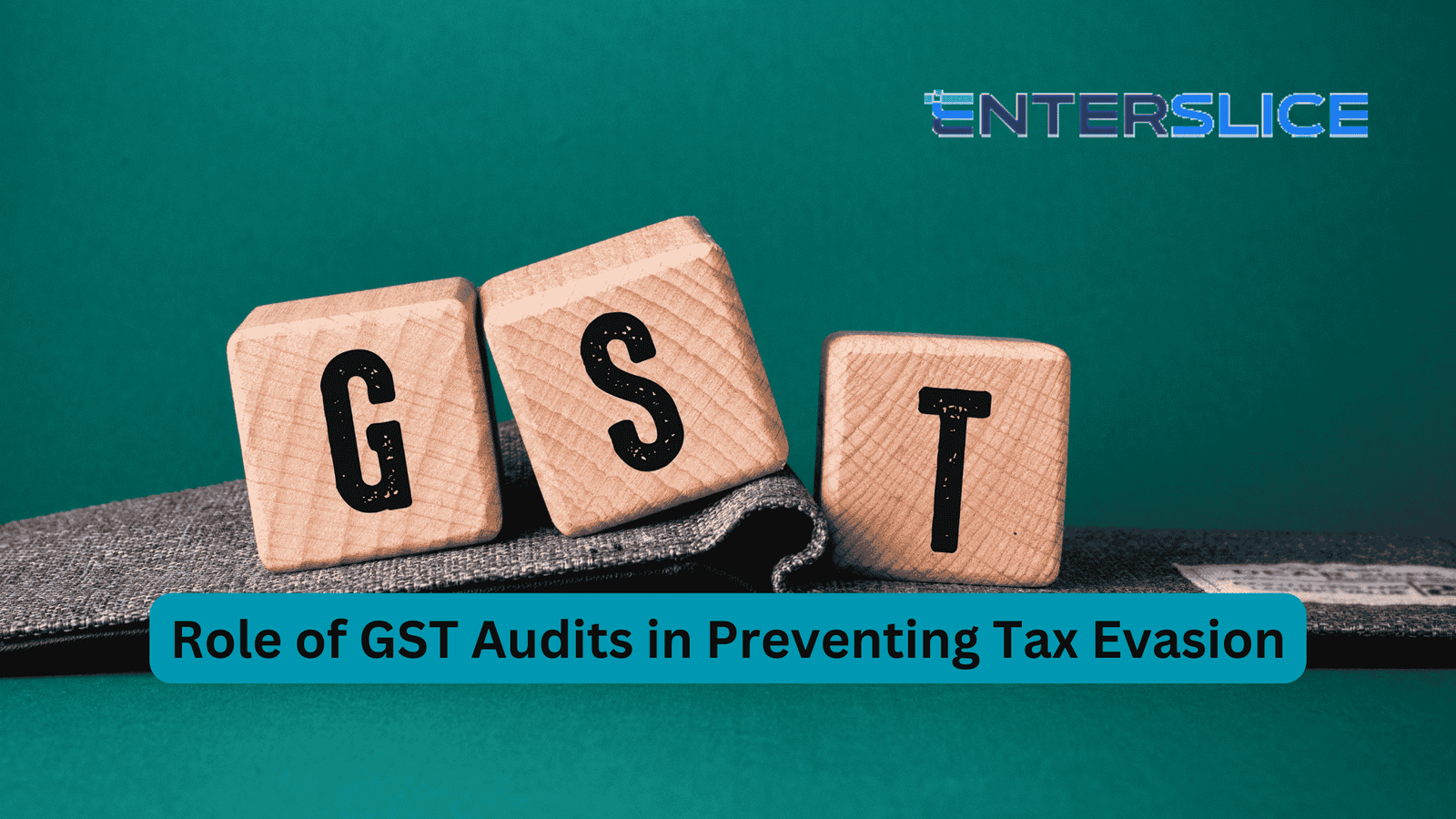GST audits play a critical role in maintaining tax compliance and preventing tax evasion. The Goods and Services Tax (GST) system in India has brought about a major shift in how businesses are taxed. While it has simplified taxation in many ways, it has also created opportunities for tax evasion. As the government continues to focus on ensuring a seamless tax regime, GST audits serve as a vital tool to detect discrepancies and uphold the integrity of the system.
What is a GST Audit?
A GST audit is an examination of the GST returns, transactions, and financial records of a business by the tax authorities. The primary objective is to ensure that the taxpayer is following the correct procedures, maintaining accurate records, and paying the appropriate amount of tax. GST audits help to verify the correctness of returns filed by businesses and identify any potential discrepancies.
The audit process involves checking the taxpayer’s books of accounts, purchase and sales records, GST payments, input tax credit (ITC) claims, and other relevant documents. A GST audit can be conducted by a government-appointed tax officer or, in some cases, external auditors, depending on the type and scale of the business.
How Do GST Audits Help Prevent Tax Evasion?
- Ensuring Accurate Reporting and Compliance
One of the key roles of GST audits is to ensure that businesses are accurately reporting their sales, purchases, and taxes. Any discrepancies in the data submitted to the tax authorities can indicate possible tax evasion. By conducting thorough audits, the government can identify incorrect reporting and rectify it before it leads to larger issues.
- Preventing Underreporting of Revenue
Underreporting of revenue is a common form of tax evasion. Some businesses may try to reduce their taxable income by underreporting sales or inflating expenses. A GST audit ensures that the revenue reported by a business is consistent with the actual transactions. If the audit reveals any differences, it may trigger further investigations and penalties for the taxpayer.
- Monitoring Input Tax Credit (ITC) Claims
The Input Tax Credit (ITC) mechanism is one of the most significant features of GST. It allows businesses to claim a credit for the tax paid on inputs (purchases) used to produce goods or services. However, some businesses may misuse the ITC mechanism by claiming credits for purchases that were not made or for fictitious transactions. Through a GST audit, tax authorities can closely examine the ITC claims and ensure that the credits are legitimate. If discrepancies are found, the business may be penalized or required to pay back the wrongly claimed credits.
- Ensuring Accurate Tax Payments
Tax evasion can also occur when businesses intentionally underpay taxes by manipulating their tax returns or delaying payments. GST audits help in identifying any tax underpayments by cross-checking the actual tax paid with the reported tax liability. If discrepancies are found, the authorities can take corrective action and ensure that the business pays the correct amount of tax.
- Identifying Fraudulent Transactions
Fraudulent transactions, such as fake invoicing or circular trading, are common tactics used to evade taxes. GST audits help to detect such activities by cross-checking the authenticity of transactions. If businesses are found to be involved in fraudulent activities, they can face serious penalties, including fines, interest, and even imprisonment in extreme cases.
The Role of GST Audit Services
Many businesses turn to GST audit services to ensure their compliance with tax laws and avoid any potential issues. These services can help companies prepare for audits, manage their GST filings, and ensure that all records are in order. Expert consultants provide guidance on maintaining accurate documentation, tracking input tax credits, and meeting tax obligations.
GST audit services can also help businesses resolve discrepancies before they become serious problems. If an audit uncovers any issues, having professionals on board can assist in addressing them efficiently and minimizing penalties.
Benefits of GST Audits for Businesses
- Improved Compliance
Regular GST audits help businesses stay on track with their compliance obligations. By ensuring that records are accurate and up to date, businesses can avoid penalties and legal trouble. Proactive audits also foster a culture of accountability and transparency.
- Better Tax Planning
A GST audit helps businesses understand how their tax obligations are structured and where they can improve efficiency. With insights from the audit, businesses can optimize their tax strategies and take advantage of any available exemptions or rebates.
- Minimized Risk of Penalties
By identifying and addressing potential issues early, GST audits reduce the risk of costly penalties and interest charges. Businesses that engage in routine audits can stay ahead of any discrepancies and avoid unwanted surprises during an official tax investigation.
- Enhanced Business Reputation
Companies that regularly undergo GST audits and maintain compliance demonstrate their commitment to lawful practices. This helps to build trust with stakeholders, customers, and the tax authorities.
Conclusion
In summary, GST audits play a pivotal role in preventing tax evasion by ensuring compliance, monitoring tax payments, and identifying fraudulent activities. By detecting discrepancies in records and transactions, audits help businesses avoid penalties, improve tax planning, and foster transparency. Utilizing professional GST audit services can help businesses navigate the complexities of the GST system, ensuring smooth operations and tax compliance.
Read: Starting Your Business with an LLP: A Comprehensive Guide
FAQs
1. What triggers a GST audit?
A GST audit can be triggered by discrepancies in GST returns, reports, or inconsistencies in the financial records. Random checks can also result in audits.
2. How often do businesses need a GST audit?
GST audits are typically conducted annually, though businesses may require more frequent audits depending on their size and complexity.
3. What are the consequences of failing a GST audit?
Failure to comply with GST audit requirements can result in penalties, interest, or further legal action depending on the severity of the discrepancies.



